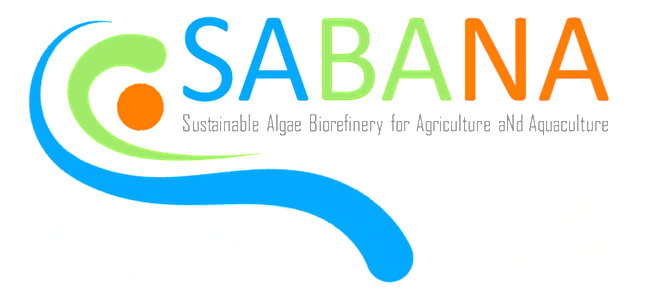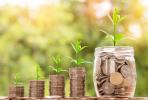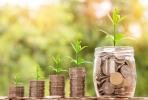
H2020 SABANA Project: Sustainable algae biorefinery for agriculture and aquaculture
- Type Project
- Status Filled
- Execution 2016 -2021
- Assigned Budget 8.848.523,75 €
- Scope Europeo
- Main source of financing Horizon 2020
- Project website SABANA
Wastewater doesn't have to be a burden; in fact, it can be a valuable resource. The EU-funded SABANA project will revolutionize the bioproducts industry by developing a large-scale, integrated microalgae-based biorefinery that uses seawater and wastewater nutrients to produce biostimulants, biopesticides, feed additives, biofertilizers, and aquaculture feed. By recovering nutrients from wastewater, concentrate, and pig slurry, SABANA minimizes waste and energy consumption. It addresses the pressing need for sustainable solutions in agriculture and aquaculture, providing bioproducts that improve crop yields and fishery production.
The most relevant activities carried out include: (i) techno-economic analysis of the proposed microalgae-related processes finally implemented at demonstration scale, (ii) sustainability, risk analysis and social acceptance assessment of the proposed technologies, (iii) development of new technologies for the construction, operation, control and management of microalgae-related production systems, including the reuse of effluents and contaminated water, (iv) the development of low-cost and low-impact technologies for microalgae harvesting, but especially for water recirculation as a necessary strategy to achieve sustainable processes, (v) the development of simplified biomass processing strategies to obtain valuable products for agriculture and aquaculture using the whole biomass, (vi) the identification of the most valuable microalgae strains for target applications, including their characterization and the development of advanced methods for monitoring industrial facilities, (vii) the demonstration of the benefits of the final products for both agriculture and aquaculture, thus helping to improve the sustainability of current production systems of food, and (viii) facilitate the transfer of knowledge to academia and businesses, but also to the general public to increase the acceptance of the proposed technologies and their final application. Implementation.
It is worth highlighting the significant efforts made by BIORIZON to build an industrial plant capable of producing specific strains of microalgae for agricultural and aquaculture applications, implementing the latest advances in reactor design and construction. AQUALIA completed two new industrial facilities dedicated to wastewater treatment with microalgae, one of which is the first industrial demonstration plant to implement this process as the sole alternative for wastewater treatment in Hellín, Spain. The new facilities include microalgae collection and processing.
In this regard, GEA and KIT conducted extensive research analyzing the different technologies and successfully implementing and evaluating them. The overall performance of the new facilities was evaluated by other partners involved in the project, such as IMIC, SZE, BEA, UAL, and UNIMI. A comprehensive analysis of the microalgae cultures was conducted at the three industrial demonstration facilities. In collaboration with BIORIZON and UNIMI, it was possible to complete the economic and environmental analysis of these industrial facilities. CIB made a significant effort to evaluate the social acceptance of the processes developed with microalgae. Other relevant activities included the selection and characterization of microalgae strains and the development of advanced methods for evaluating microalgae cultures. The demonstration of final products in real-world field trials and their commercialization were also highly relevant activities carried out by AIA and BIORIZON.
SABANA demonstrated the reliability of large-scale integrated microalgae-based biorefineries for the production of biostimulants, biopesticides, and food additives, as well as biofertilizers and aquaculture feed, using exclusively seawater and nutrients from wastewater (sewage treatment plant, concentrate, and slurry). The project concludes with the development of different zero-waste processes on a demonstration scale, covering several hectares, that are both environmentally and economically sustainable. A Demonstration Center (0.5 ha) for microalgae-based biorefineries has been established and is operational to demonstrate the technologies, evaluate the operational characteristics of the systems, assess the environmental impact, and collaborate with potential clients for their implementation and use.
This center is part of the EU-supported PILOT4U platform, and new European projects are currently being developed there. More importantly, an industrial facility of up to 1.7 ha is operating for the production of clean microalgal biomass for agricultural and aquaculture applications in Almería (Spain), while two other facilities of 3.0 and 2.0 ha are operating in Mérida and Hellín (Spain), respectively, for wastewater treatment coupled with microalgal biomass production for agricultural uses. The industrial facilities confirm the reliability of the proposed technologies, as well as the economic, environmental, and social benefits of their implementation. Notably, the industrial facility installed in Hellín is the first in the world to fully treat the city's wastewater using microalgae-related technologies. In short, the SABANA project completes some of the most relevant demonstrations of microalgae-related processes worldwide.
The main advantages of the technologies and processes developed within the framework of the SABANA project are (i) the sustainability of the developed processes, which allows the use of seawater or wastewater, thus avoiding the use of usable freshwater and recovering nutrients from wastewater and manure, while minimizing energy consumption; and (ii) the socioeconomic benefits, thanks to the relevance of the targeted bioproducts to two fundamental pillars of food production: agriculture and aquaculture. Bioproducts capable of increasing crop yields and fishery production are in high demand, while nutrient recovery is a priority in the EU. Instead of considering wastewater as an inevitably useless and problematic waste product of our society, the SABANA project demonstrates its potential as an opportunity for economically relevant sectors.
The SABANA project has addressed (i) the utilization of microalgae-bacteria consortia and co-culture with other algae to control grazing species, (ii) the implementation of efficient thin-layer cascades and raceways, (iii) the scaling up of bioreactors to ensure stable operation, (iv) the use of seawater to increase process sustainability; (v) the recovery of nutrients from wastewater, (vi) the development of harvesting processes taking into account the remaining water, (vii) the establishment of processes for the gentle/energy-efficient extraction of bioproducts, (viii) the processing of residual biomass to produce biofertilizers and aquafeeds in zero-waste schemes, (ix) the use of robust and sustainable technology.
SABANA aims to develop a large-scale integrated microalgae-based biorefinery for the production of biostimulants, biopesticides, and food additives, as well as biofertilizers and aquaculture feed, using only seawater and nutrients from wastewater (wastewater, concentrate, and slurry). The goal is to achieve a zero-waste process at a demonstration scale of up to 5 ha, sustainable both environmentally and economically. A Demonstration Center for this biorefinery will be operated to demonstrate the technology, evaluate the system's operational characteristics, assess its environmental impact, and collaborate with potential customers for its use.
The main advantages of the SABANA project are: the sustainability of the process, which uses seawater and recovers nutrients from wastewater, minimizing energy consumption; and the socioeconomic benefits, thanks to the relevance of the targeted bioproducts to two fundamental pillars of food production: agriculture and aquaculture. Bioproducts capable of increasing crop yields and fishery production are in high demand, while nutrient recovery is a priority in the EU. Rather than viewing wastewater as an inevitably useless and problematic waste product of our society, SABANA recognizes its potential as an opportunity for economically relevant sectors.
The SABANA project includes (i) the use of microalgae and bacteria consortia in co-culture with other algae to control grazing species; (ii) the implementation of efficient thin-layer cascade and raceway systems; (iii) the expansion of reactors to ensure stable operation; (iv) the use of seawater to increase process sustainability; (v) the recovery of nutrients from wastewater; (vi) the development of harvesting processes considering the remaining water; (vii) the establishment of processes for the extraction of bioproducts in a gentle and energy-efficient manner; (viii) the processing of residual biomass to produce biofertilizers and aquaculture feeds in zero-waste schemes; (ix) the use of robust and sustainable technology.
In summary, the SABANA project concludes with the demonstration of up to four different microalgae facilities, totaling 6.7 ha. All of these contribute to demonstrating the reliability of microalgae-based industrial processes. The target compounds were already validated, and the developed biostimulants and biopesticides demonstrated an increase in food production in agriculture (>15%), while reducing fertilizer consumption (<10%), among other benefits.
In the aquaculture field, microalgae-based feed additives allow to improve fish health by increasing their tolerance to adverse stress conditions or low-quality feed. Both the developed products and production technologies were demonstrated at full scale in (i) the R&D facility operated by the University of Almería, now part of the Pilot4U platform (0.5 ha, Almería, Spain), (ii) the production facility operated by Biorizon Biotech (1.7 ha, Almería, Spain) for the production of microalgae using clean water and fertilizers, and (iii) the wastewater treatment facility operated by FCC Aqualia (3.0 ha, Mérida, Spain; 2.0 ha, Hellín, Spain) for the simultaneous production of microalgal biomass coupled with wastewater treatment processes.
- UNIVERSIDAD DE ALMERIA (UAL)







